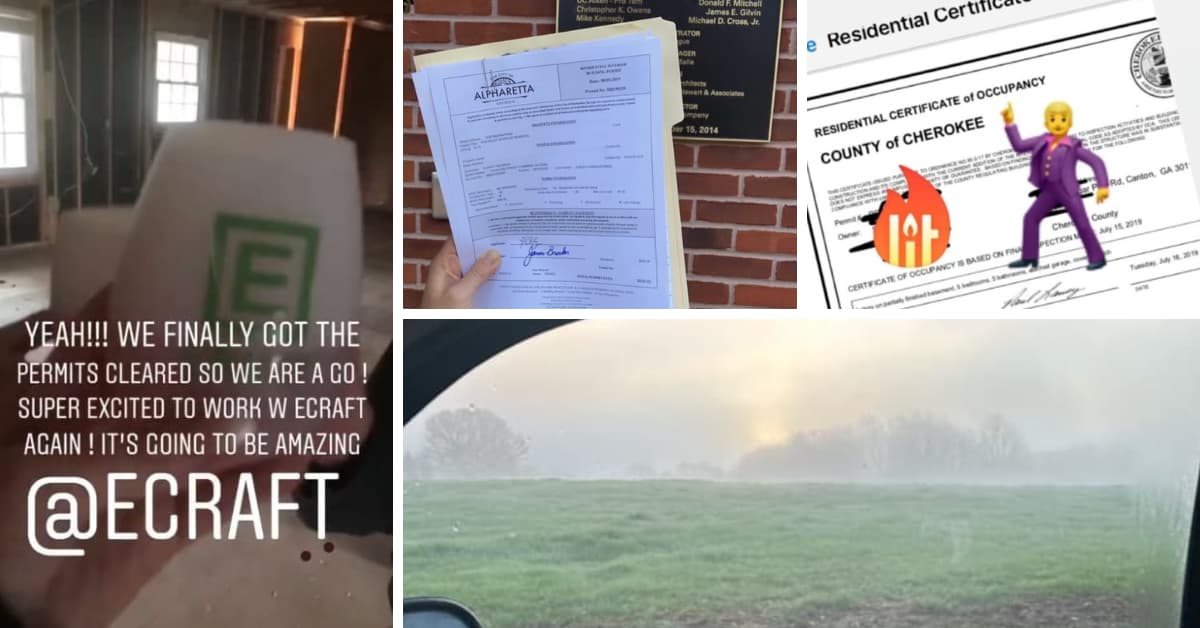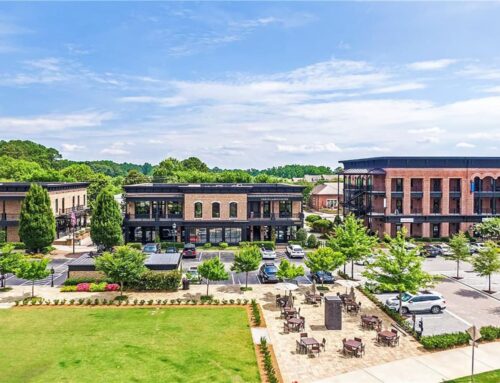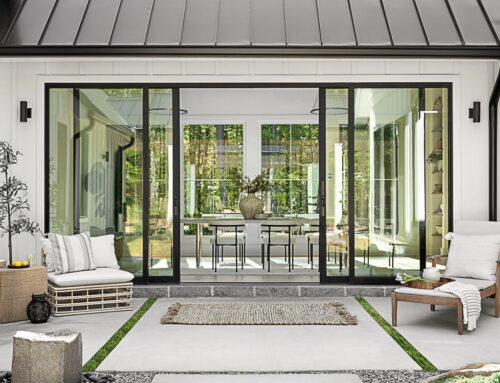As a leading custom home builder in Georgia, Ecraft has extensive experience guiding homeowners through the complex process of obtaining the necessary permits and adhering to local regulations when building a custom home. In this blog post, we’ll provide a comprehensive overview of the key considerations and steps involved in navigating the permitting and regulatory landscape for your custom home project. Building a custom home in Georgia requires a thorough understanding of the various permits and approvals needed at the state and local levels. The specific requirements can vary depending on the location, size, and complexity of your custom home project, but there are some common elements to be aware of.

Obtaining Building Permits

The first and most crucial step in the process is securing the appropriate building permits. In Georgia, building permits are typically issued by the local municipality or county where the custom home will be constructed. These permits ensure that your custom home design and construction plans meet all applicable building codes and safety standards. The permit application process often involves submitting detailed plans, including architectural drawings, engineering specifications, and site plans. Ecraft’s experienced team can assist you in preparing and submitting the necessary documentation to streamline this process.
Zoning and Land Use Regulations
In addition to building permits, your custom home project must also comply with local zoning and land use regulations. These regulations dictate the permitted uses, lot sizes, setbacks, and other restrictions for the property where your custom home will be built. Ecraft works closely with local planning and zoning departments to ensure that your custom home design aligns with the applicable zoning requirements. This may involve obtaining special permits or variances if your plans deviate from the standard zoning rules.


Environmental Considerations
Depending on the location and characteristics of your custom home site, you may also need to obtain permits or approvals related to environmental regulations. This can include wetlands permits, stormwater management plans, and tree removal approvals. Ecraft’s team is well-versed in navigating these environmental regulations and can help you ensure compliance throughout the custom home building process.
Homeowners Association (HOA) Requirements
If your custom home is located within a planned community or subdivision with a homeowners association (HOA), you’ll need to comply with the HOA’s architectural guidelines and approval processes. This may include submitting your custom home plans for review and obtaining approval from the HOA’s architectural review committee. Ecraft works closely with HOAs to understand and meet their specific requirements, ensuring a seamless custom home building experience for our clients.
Utility Connections and Inspections
Building a custom home also requires coordinating with utility providers to ensure proper connections for electricity, water, sewer, and other services. This may involve obtaining permits or approvals from the relevant utility companies. Additionally, your custom home will be subject to various inspections throughout the construction process to verify compliance with building codes and safety standards. Ecraft’s team manages these inspections and works closely with local authorities to ensure a smooth and timely custom home building process.

Navigating the Permitting and Regulatory Landscape
Navigating the permitting and regulatory landscape for a custom home project can be a complex and time-consuming process. However, with the right guidance and expertise, it can be navigated successfully. Here are some key steps Ecraft recommends for homeowners building a custom home:
- Research local building codes, zoning regulations, and environmental requirements early in the custom home planning process.
- Engage with local authorities, such as the building department, planning and zoning office, and utility providers, to understand the specific requirements for your custom home project.
- Work with an experienced custom home builder, like Ecraft, who can help you identify and comply with all necessary permits and regulations.
- Allocate sufficient time in your custom home project timeline for the permitting and approval process, as it can often take several weeks or months.
- Maintain clear communication and documentation throughout the custom home building process to demonstrate compliance with all applicable regulations.


By following these steps and partnering with a reputable custom home builder, you can navigate the permitting and regulatory landscape with confidence and ensure a successful custom home building experience. At Ecraft, we pride ourselves on our deep understanding of the custom home building process, including the complexities of obtaining permits and adhering to local regulations. Our team of experts is dedicated to guiding our clients through every step of the custom home journey, from initial planning to final completion. Contact us today to learn more about how we can help you build your dream custom home.



